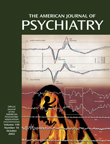Abstract
OBJECTIVE: The authors evaluated memory performance in Holocaust survivors and its association with posttraumatic stress disorder (PTSD) and age. METHOD: Memory performance was measured in Holocaust survivors with PTSD (N=31) and without PTSD (N=16) and healthy Jewish adults not exposed to the Holocaust (N=35). Explicit and implicit memory were measured by paired-associate recall and word stem completion, respectively. RESULTS: The groups did not differ by age or gender, but the survivors with PTSD had significantly fewer years of education and had lower estimated IQs than the survivors without PTSD and the nonexposed group. There was a significant overall group effect for paired-associate recall but not word stem completion. The survivors with PTSD recalled fewer semantically unrelated words than did the survivors without PTSD and the nonexposed group and fewer semantically related words than the nonexposed group. Of the survivors with PTSD, 36% performed at a level indicative of frank cognitive impairment. Older age was significantly associated with poorer paired-associate recall in the survivors with PTSD but not in the other two groups. CONCLUSIONS: Markedly poorer explicit but not implicit memory was found in Holocaust survivors with PTSD, which may be a consequence of or a risk factor for chronic PTSD. Accelerated memory decline is one of several explanations for the significantly greater association of older age with poorer explicit memory in survivors with PTSD, which, if present, could increase the cognitive burden of this illness with aging.



